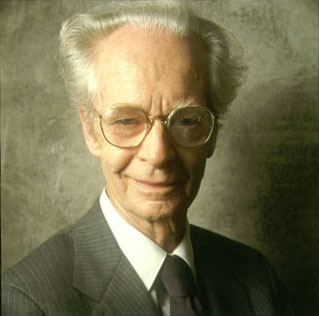Edutech, wikis and so on...

The task for this week was taking a look at Edutech wiki in order to learn something more about the “wikisphere”.
Afterwards, we had to choose one subject to develop among the wide range offered by this wiki.
As regards me, I decided to select “Programmed instruction” for various reasons:
- there was only one comment on this subject
- the comment was not really expanded
- the fewer lines written on the topic intrigued me and encouraged me to learn more on this kind of education
- I thought that this topic might be useful for our course
I supposed I knew the topic quite well, since our course is based on it but, going on with my analysis, I realized that Programmed instruction, as we know it, is dated back to 1934.
However, the theory was combined with practice only in 1950, thanks to Burrhus Frederic Skinner (the person in the photo), who invented the “teaching machine”, experimenting a new self-learning method based on computer.
As a consequence, I think we can consider the “teaching machine” as a forerunner of educational softwares and hardwares and computer-based learning (or education) as an evolution of programmed instruction.
I would like to stress that, even if Skinner stated that sometimes teachers fail to shape their students’ behaviour sufficiently, he did not bring into question the importance of teachers in education. He just stated that teachers might be helped with technical devices that enabled students to learn at their own speed. Hence, programmed instruction was considered to be a medium of integrating educational activities.
To conclude, I wish to point out that programmed instruction is now often used also in industry and the armed services to train personnel.
I found this new experience quite stimulating. I think it is wonderful to share knowledge without moving and all this has been possible only thanks to technologies such as wikis.
This analysis made me understand that good ideas are not enough: they need to be combined with the appropriate technology. As a matter of fact, a system based on teaching machines was economically impossible because of higher costs; however, the cheapness and the quickness of wikis enabled us, nowadays, to benefit from free learning material directly at home.
Just a few words on this writing experience.
When I was trying to reorder the large number of information I gathered, I worried about the fact that unknown people could read my analysis and based theirs on it. I was not sure about the cogency of my composition, so, I decided to try to do a good work by citing my sources and complying with them.
As a consequence, I adopted a neutral point of view without giving my personal impressions on topic, even though I also referred to the background I have acquired so far.
I have understood, perhaps, for the first time the importance of wikis.
They are debates in progress! I’m thinking about scholars who have the possibility of implementing their researches by this medium. They do not need to move or follow boring lectures in order to learn about the evolution of a certain topic: they can compare their ideas with their colleagues at home, interacting with them and finding solutions for different problems.
And what about us? In my opinion, we can learn a lot from each other, completing our reflections on various topics.
However, it is important not to minimize the central role the direct (and human) contact plays.
Do you agree with me?
Francesca
Reference to http://edutechwiki.unige.ch/en/Programmed_instruction
Photo taken by http://skeptically.org/skinner/id1.html

0 Comments:
Post a Comment
<< Home